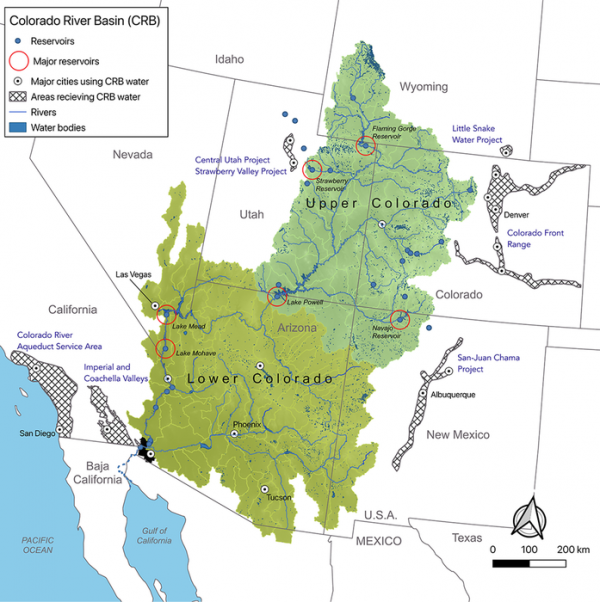New research predicts that changes in mountain snowmelt will shift peak streamflows to much earlier in the year for the vast Colorado River Basin, altering reservoir management and irrigation across the entire region.
“Because of global climate change, areas of Colorado, Utah and Wyoming could have much less water, and future hydrologic conditions may more closely resemble those of the arid Southwest regions of the basin today,” said Katrina Bennett, a hydrologist at Los Alamos National Laboratory and coauthor of the paper published in the journal Earth and Space Science.
The basin stretches from sea level at the Gulf of California to higher than 14,000 feet in the Rocky Mountains of Colorado and provides critical water to cities and farmers within the basin and beyond. Significant water is diverted to large population centers, including Albuquerque, Denver, Los Angeles, Salt Lake City, San Diego and Santa Fe.
The study by a Los Alamos team using artificial intelligence predicts snowmelt disappearing entirely in some sub-watersheds and large snowpack losses in others.
Read more at DOE/Los Alamos National Laboratory
Image: Under climate change, much of the Colorado River Basin is likely to see decreased snowpack and streamflows. (Credit: Los Alamos National Laboratory)


